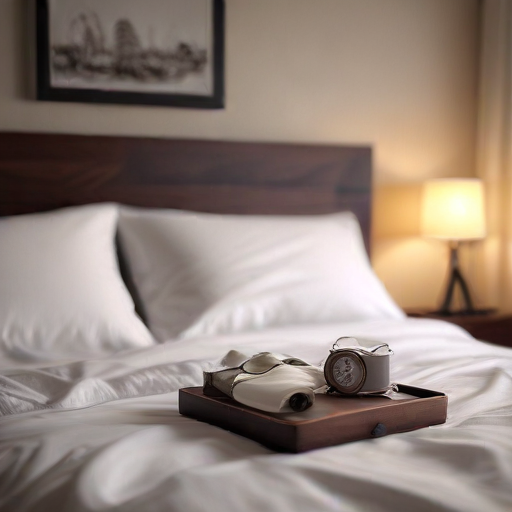There is a thriving market centered around sleep, evident in the popularity of sunrise alarm clocks, premium mattresses, REM-tracking devices, and regular melatonin subscriptions. However, the question arises: should we really be investing so heavily in our quest for better sleep?
As the final episode of season eight of the Quartz Obsession podcast explores, Dr. Michael Breus, a noted clinical psychologist and sleep specialist, provides insights on several pressing questions: Why is the market for sleep so expansive? Do these products actually assist us in achieving better rest? What are the essential functions of sleep? And what physiological processes occur in our bodies during sleep and dreaming?
The increasing confusion about sleep can be attributed to the rapid rise of insomnia, which Dr. Breus connects to various factors including technological distractions, heightened stress levels, and altered societal habits surrounding sleep. Historically, sleep problems were not prevalent; this changed with modern inventions, such as the light bulb and overtime work, which disrupted traditional sleep patterns.
Dr. Breus highlights that stress plays a significant role in today’s sleep issues, affecting not only individuals but also contributing to global sleeping difficulties. He emphasizes the importance of good sleep and its impact on overall health—sleep influences every organ system and disease state.
Interestingly, social media usage before bed can exacerbate sleep troubles. Dr. Breus advises against engaging with screens at night, citing that the mental engagement from activities like scrolling on Instagram can hinder one’s ability to unwind. Instead, he recommends creating a pre-sleep routine that allows the mind to settle and transition to relaxation.
Furthermore, the podcast delves into the historical context of sleep patterns, mentioning the previous notion of biphasic sleep, where people would wake in the night to work before returning to rest, a practice that has virtually faded in contemporary society.
The conversation transitions to practical tips for improved sleep quality. Dr. Breus recommends a structured approach: consistently waking up at the same time, limiting caffeine after midday, stopping alcohol consumption a few hours before bedtime, exercising regularly but not too close to sleep, and incorporating mindful practices upon waking.
Looking ahead, the future of sleep research appears promising. Innovations in both pharmaceuticals and cognitive behavioral therapy are advancing, with potential developments in AI applications that may enhance sleep medicine.
In this exploration of sleep, Dr. Breus underscores the significance of personal responsibility in achieving better sleep. With dedication to adopting simple yet effective tweaks in daily habits, individuals can transform their sleep experience, potentially leading to vastly improved quality of life.
This discussion ultimately reminds us of the importance of sleep and offers hope that through responsible practices and continued advancements in sleep research, better sleep solutions will be on the horizon for those struggling with insomnia.
In summary, this podcast episode serves as a vital source of knowledge for anyone seeking to navigate the complexities of sleep and offers actionable insights for achieving a restful night, while also instilling optimism for the future advancements in sleep science.
